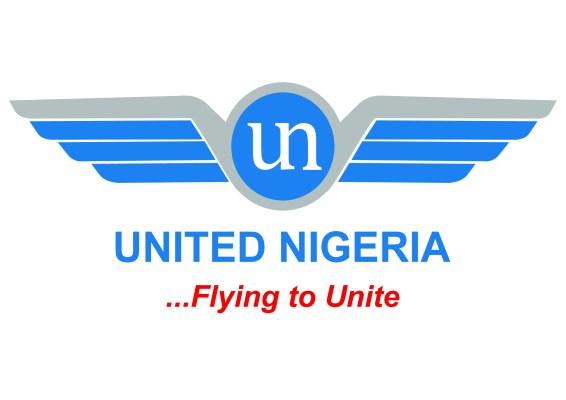Labour wants supplementary budget to accommodate new minimum wage – Ajaero

Comrade Joe Ajaero, until recently, was the leader of a faction of the Nigeria Labour Congress. He is now the National President of the newly formed United Labour Congress (ULC). In this interview with JOY EKEKE, he speaks about the challenges facing the labour movement and the objectives of the ULC.
Why did you dump the Nigeria Labour Congress (NLC) to lead the new United Labour Congress (ULC)? Is it because of the allegation that the former hasn’t been effective and lacks aggression?
Well, that aggression equally affected the election that created the split; we saw that in the labour movement you now see someone winning the election and another person being announced as the winner. That was the beginning of the crisis that engulfed the NLC, apart from others. We now see that agreements are reached and breached with impunity. We had an understanding in the labour movement. Adams Oshiomhole was from the private sector-based unions. When he finished, we moved to the public sector. When we finished, we had an agreement that it should come back to the private sector and at the close of nomination, somebody else from the public sector went and filled the form and even when he lost the election, his agents came to congratulate us, they had to fall back on the previous government of President Jonathan who accused me of being hard on them over the privatization of electricity.
They moved in police officers to destabilize my agents and announce another result. This has not been addressed as we speak, not even recounting the ballot papers or allowing an investigation. That led us gradually to where we are. You can now understand where the aggression went into.
Let me add this, you cannot have a labour centre without the oil workers, electricity workers, bank workers and without the aviation workers. This set of people makes up the United Labour Congress. Without mincing words, I’m not seeing the other unions as weak, but I think it’s better to run a labour centre with key contributors to the economy.
What are the objectives of the ULC?
The main objective is workers’ centralism. The interest of the worker – the worker first. If the worker is angry, the leaders are angry. If they are better, it will reflect. Anything short of that, count us out.
We are committed to the welfare of workers, their growth, and promotion and making sure the economy runs well, so it will reflect on the workers take home; we are committed to ensuring that inflation is reduced and devaluation stops.
If all these ends, the little earned will be enough. It is not all about salary increase because if we are allowed, we will advocate that the dollar should be pegged at N50 or less. We will remain where we are at minimum wage. The power of the currency will be higher.
What is the strength in terms of the spread of the ULC across Nigeria?

Very strong, and it’s not something that can be argued. It cuts across all sectors of the economy, all zones and regions of the country.
Can you differentiate between the ULC and the NLC, since you are a former factional leader of the NLC and now the president of the new ULC?
There is a problem principally with the NLC if you understand the formation; the formation is such that it was the other leg of military dictatorship in the country. Before 1978, we used to have four labour centres, including the ULC. Obasanjo came as a military dictator and insisted that all centre must answer one name – NLC – and he forced us into the NLC.
It’s one of those acts of dissolving labour, political parties and banning public assembly whenever the military takes over power.
Incidentally, when he came back as a civilian president in 2002/2003, he said NO, given the democratic atmosphere, he allowed people in line with section 40 of the 1999 Nigerian constitution which gives rights to form and belong to any trade union of your choice, political party and religion.
At that point, the Trade Union Congress of Nigeria (TUC) was registered which made it two. What we have done now is to express that same intention based on the provision of the law to be democratic and be the second registered trade union centre because the NLC has not been registered, as we talk.
The NLC is not a registered labour centre; the TUC registered and were given the number 001. The NLC said no since it was in existence before the law; meanwhile, the amendment deleted the law that registered them. So it’s invariably saying, since Action Group was in existence in the 60’s and it was banned in the 80’s when the likes of UPN surfaced, then the name Action Group can still be active.
The ULC wants to be registered as the second labour centre. In as much as the NLC is recognized, they are not yet registered.
What is your position on the minimum wage, currently earned by workers in the country?
Very low, it cannot be mentioned. That is why immediately after the fuel increase, we met with the federal government to negotiate and they agreed to set up a minimum wage committee, but that committee is sleeping, nothing seems to be coming out of it. But to ask if the current wage which is lower than a bag of rice is what workers should be earning, it is unimaginable.
The 2017 budget has no provision for an increase in minimum wage, what is your opinion about it?

Although there is no provision, but there is a marginal increase from the 2016 budget. If they have to do a supplementary budget to accommodate it, there is no problem.
How do you intend to resolve the crisis in the oil sector, between laid off workers and International Oil Companies (IOCs)?
I think the problem is not that they are stronger than the country; the problem is that most people in government collaborate with them. Without mincing words, one thing I know and I’m very sure of is, the unions in the oil sector have what it takes to engage the IOC, except if the sentiment is brought in.
I have never seen a country’s laws and policies that do not give protection to the weak – the workers. It pays so much attention to capital and not even the human resources.
When such happens, these are the kind of things you witness; exploitation on daily basis. Our colleagues in the oil sector have the capacity to engage them, but if they send a signal out, I promise a total engagement of the IOCs and parties concerned.
Nigerians were hopeful of Labour helping to negotiate a reduction in fuel pump price, but it seems labour did not live up to their expectations. What can you say about this?

Immediately after the last negotiation, during the time of hike in PMS, there were two committees set up; the palliative committee that is working, and the minimum wage sub-committee that is supposed to have gone far in negotiation, but they are really slow in bringing results.
The Petroleum Products Pricing Regulatory Agency (PPPRA) board has been reconstituted; it is their responsibility to fix an appropriate price of petroleum products. I don’t expect the government to wake up and dictate the price anymore. We are expecting a report from the committees.
We can’t predict a hike or not, but if it happens we equally have a way of engaging it, because it is affecting the take-home pay of workers; transportation, cost of living. The issue of the minimum wage will be pursued with vigour and even those in government should have seen the level of suffering Nigerians are facing. Those are the things we anticipate in the New Year, but I think a proactive government should come up with policies that will mitigate the sufferings of Nigerians.
What is your message to Nigerian Workers in 2017?
Nigerian workers should be aware that a new dawn has come, there is a new movement. The era of omnipotent labour centre that does not care, that is not feeling threatened, that feels there is little or no competition, is over. This is a time unions and centres will be known by their action and their service to the workers.











